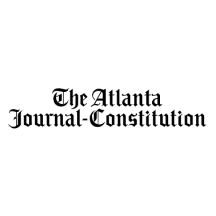A recent poll indicates that a significant majority of Canadians support Air Canada flight attendants in their pursuit of fair wages. According to a press release from the Canada Union of Public Employees, 88% of respondents believe flight attendants should be compensated for all work-related duties, including boarding and deplaning. Additionally, 59% think the federal government should allow flight attendants to take job action, even if it leads to flight disruptions.
However, the situation has become more complex as Air Canada has canceled over half a million flights. Reports suggest that the union may be in an illegal strike position after disregarding an order from the Canadian Industrial Relations Board (CIRB) to return to work during binding arbitration mandated by Jobs Minister Patty Hajdu.
The Conservative Party has expressed support for the flight attendants, with labour critic Kyle Seeback criticizing Mark Carney, stating, "Mark Carney is proving once again that he is no friend of workers or labour and would rather reward his corporate buddies than pay flight attendants who work tirelessly on their feet all day."
The New Democratic Party (NDP) has echoed similar sentiments. The union's grievances include claims of inadequate pay, with one flight attendant sharing a tax return on Reddit that showed an annual income of $35,000, which she described as "poverty wages."
Air Canada has countered that it has proposed a 38% pay increase over four years, which would result in senior flight attendants earning an average of $87,000 by 2027. A key issue in the negotiations is the lack of ground pay, a point that stems from the previous contract agreed upon by the union's members.
The ongoing dispute raises broader questions about Canada's labor relations and economic future. Carney has referred to Canada as being at a "hinge moment" in its history, particularly regarding labor relations. In 2015, the Supreme Court of Canada reaffirmed the right to strike as a fundamental aspect of collective bargaining under the Canadian Charter of Rights and Freedoms.
In response to potential strike actions in federally regulated industries, the federal government has invoked section 107 of the Canadian Labour Code. This section requires union members to return to work while engaged in binding arbitration before the CIRB. This approach has faced scrutiny, especially following the WestJet mechanics strike last year, where the absence of a direct order to return to work allowed the union to maintain its right to strike.
In contrast, the current government has taken a firmer stance in recent disputes, including with rail workers and Teamsters Canada, where a return-to-work order was issued. In the Air Canada situation, Minister Hajdu announced her decision to exercise authority under section 107, directing the CIRB to arbitrate the dispute without explicitly ordering a return to work.

 Canada News
Canada News

 America News
America News Futurism
Futurism Raw Story
Raw Story The Atlanta Journal-Constitution Sports
The Atlanta Journal-Constitution Sports Nicki Swift
Nicki Swift Truthout
Truthout Atlanta Black Star Entertainment
Atlanta Black Star Entertainment The Hill
The Hill CBS Colorado Business
CBS Colorado Business